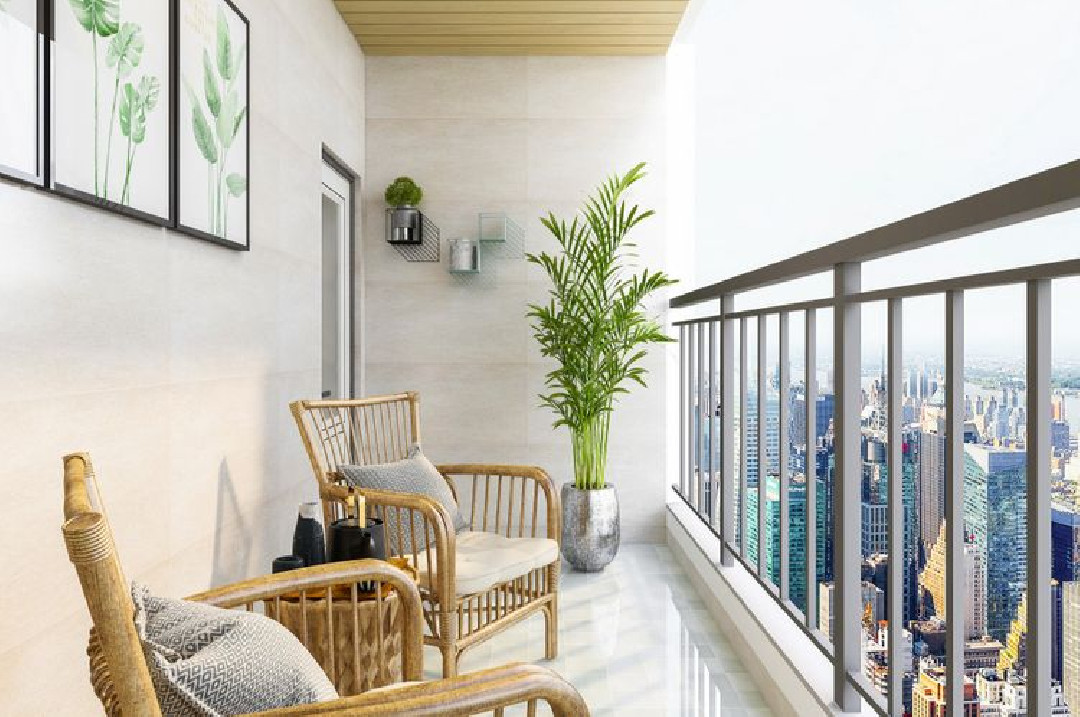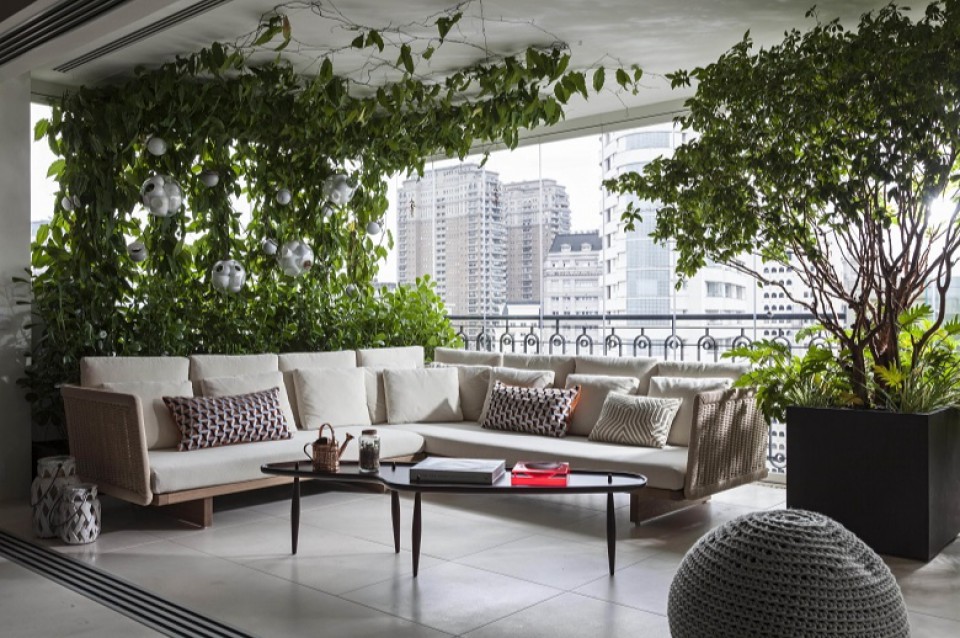Transforming Your Balcony into a Mini Garden: Practical Solutions for Urban Gardening
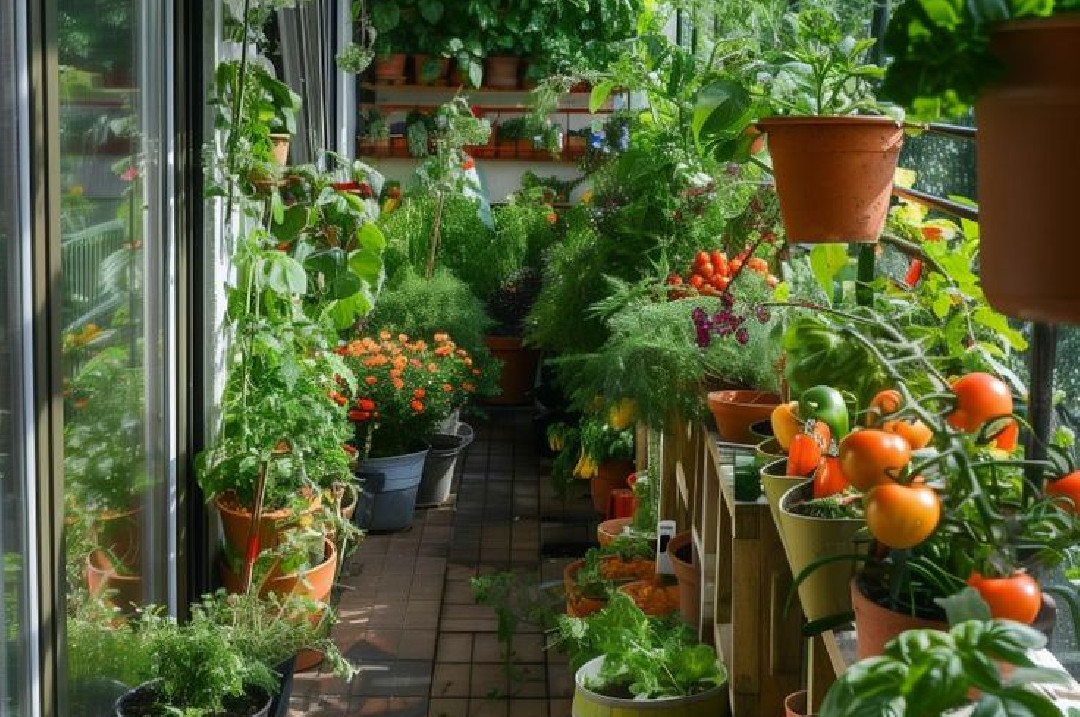
In the midst of urban life, having a personal green space is a luxury. However, limited space often becomes a major challenge for those who want to grow plants at home. Despite this, a balcony can be a practical solution for creating a mini garden in the city. With the right planning, even a small balcony can be transformed into a functional and aesthetic green space. This article will discuss easy steps to turn your balcony into a thriving mini garden full of benefits.
Why Urban Gardening on a Balcony?
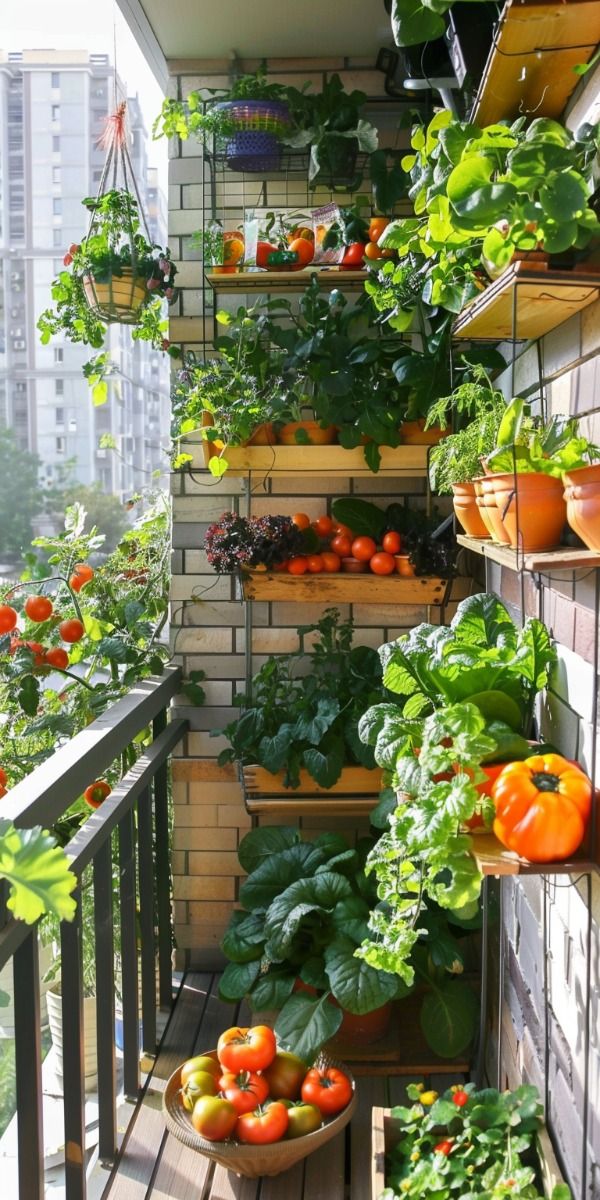
Urban gardening is not just a trend but a necessity amidst the growing awareness of sustainability and access to healthy food. A balcony, often used only for drying clothes or as an open area, actually holds great potential to be utilized as a mini garden. With a little effort, you can grow fresh vegetables, fruits, or even herbs that can meet your daily kitchen needs.
Getting Started: Assessing Your Balcony’s Potential
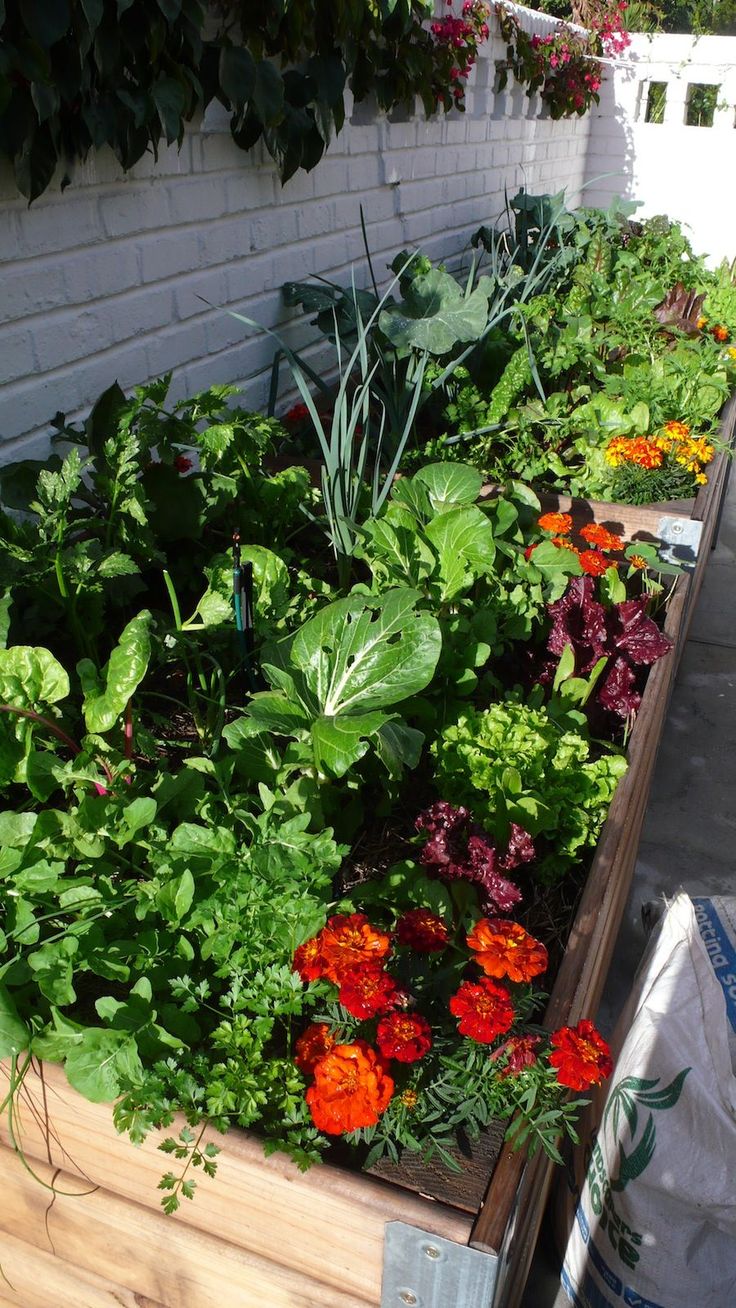
Before you start planting, there are a few things to consider to ensure the success of your balcony mini garden:
-
Sunlight Exposure: Plants need sunlight for photosynthesis. Ensure your balcony receives enough sunlight for at least 4-6 hours a day. If your balcony is more shaded, choose plants that tolerate lower light levels, like lettuce or spinach.
-
Available Space: The size of your balcony will determine the number and types of plants you can grow. Even with limited space, you can still garden by opting for vertical methods, such as plant racks or hanging gardens.
-
Water Accessibility: Plants need regular watering, so make sure you have easy access to a water source. Using a watering can with a hose that can reach all areas of the balcony is one practical solution.
Choosing the Right Plants
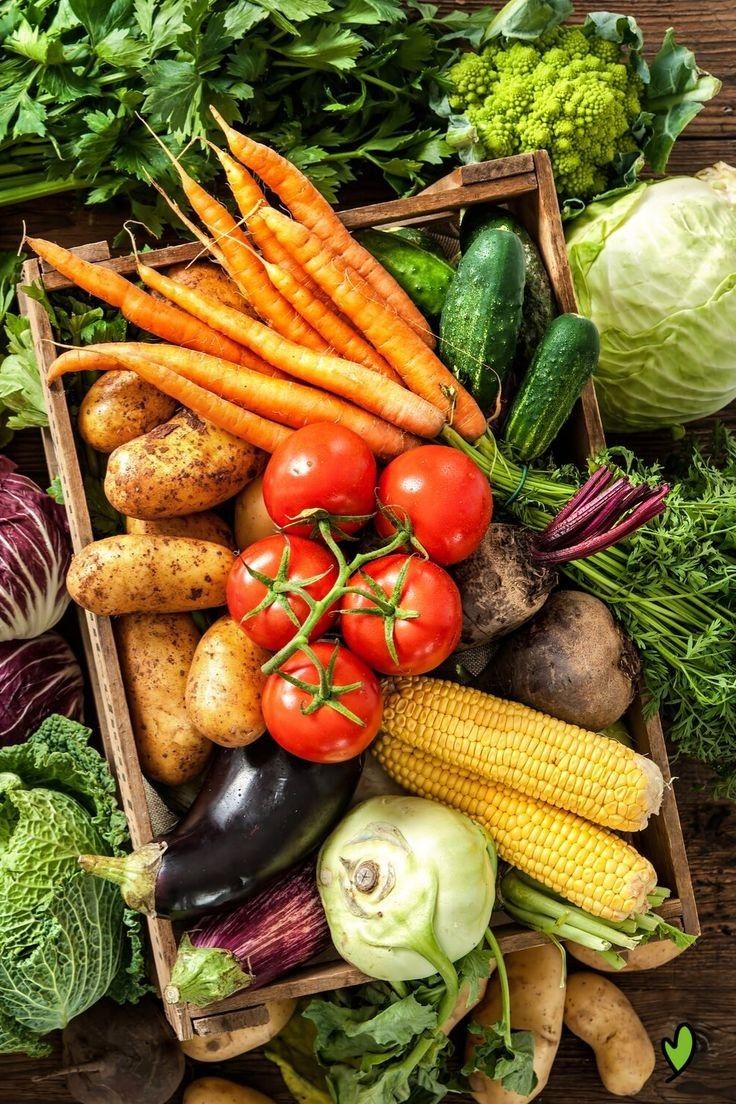
Selecting the right plants is crucial for urban gardening on a balcony. Here are some types of plants that are well-suited for balcony gardens:
-
Leafy Vegetables: Spinach, kale, and lettuce are examples of vegetables that grow well in limited space. They don't require much room and can be harvested multiple times.
-
Herbs: Basil, mint, and thyme are ideal herbs for balconies. Besides requiring little space, these plants can also add flavor to your cooking.
-
Fruits: Strawberries and cherry tomatoes are examples of fruits that can be grown in pots on the balcony. Though small, they can yield satisfying results with proper care.
-
Ornamental Plants: In addition to edible plants, ornamental plants like succulents or hanging plants can also beautify your balcony.
Implementing Effective Gardening Techniques
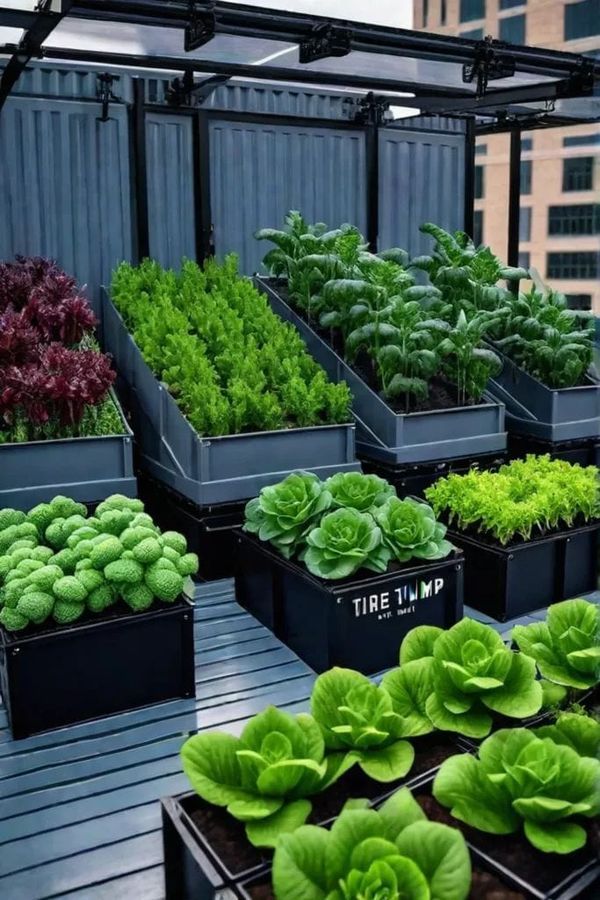
To optimize space and ensure your plants thrive, here are some techniques you can apply:
-
Vertical Gardening: Using racks or walls for vertical gardening saves space and allows you to grow a wider variety of plants.
-
Choosing the Right Pots: Select pots that suit the type of plant. Small pots are ideal for herbs, while larger plants like tomatoes require deeper and wider pots. Make sure the pots have good drainage to prevent waterlogging.
-
Soil Selection: Use a soil mix rich in nutrients and well-draining. You can mix the soil with compost or organic fertilizer to provide extra nutrients for the plants.
-
Regular Maintenance: Regularly check your plants to ensure they are free of pests or diseases. Proper watering is essential, especially during the summer months. Plants in pots tend to dry out faster than those in the ground, so make sure to water them regularly.
Maximizing Every Corner of the Balcony
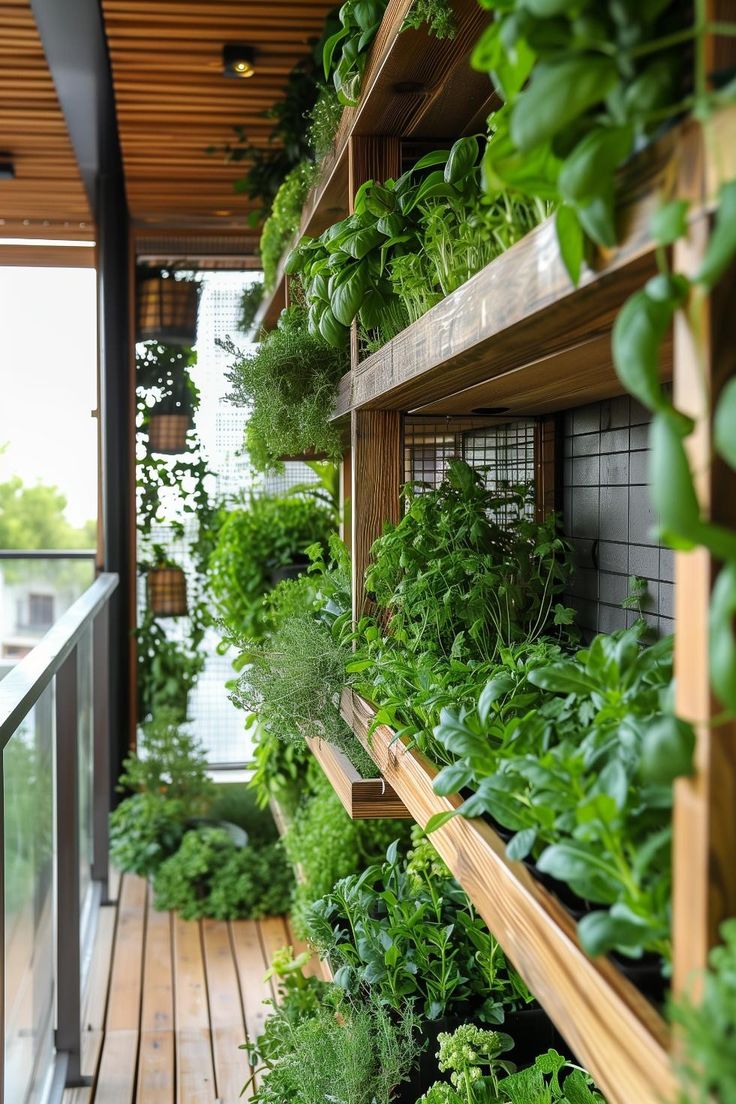
In addition to planting in pots, you can also utilize the walls and ceiling of your balcony for planting. Wall shelves, hanging pots, or vertical garden pockets are some ways to expand your mini garden. Don’t hesitate to get creative by combining different types of plants to make your balcony more vibrant and dynamic.
Benefits of a Mini Garden on the Balcony
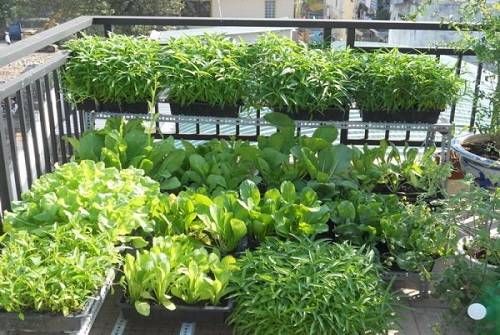
Having a mini garden on your balcony not only provides you with access to fresh produce but also offers several other benefits:
- Stress Relief: Interacting with plants and nature is known to help reduce stress and improve mental well-being.
- Sustainability: By growing your own vegetables and fruits, you contribute to reducing your carbon footprint and supporting environmental sustainability.
- Aesthetics: Green plants can beautify your balcony, making it a comfortable place to relax.


